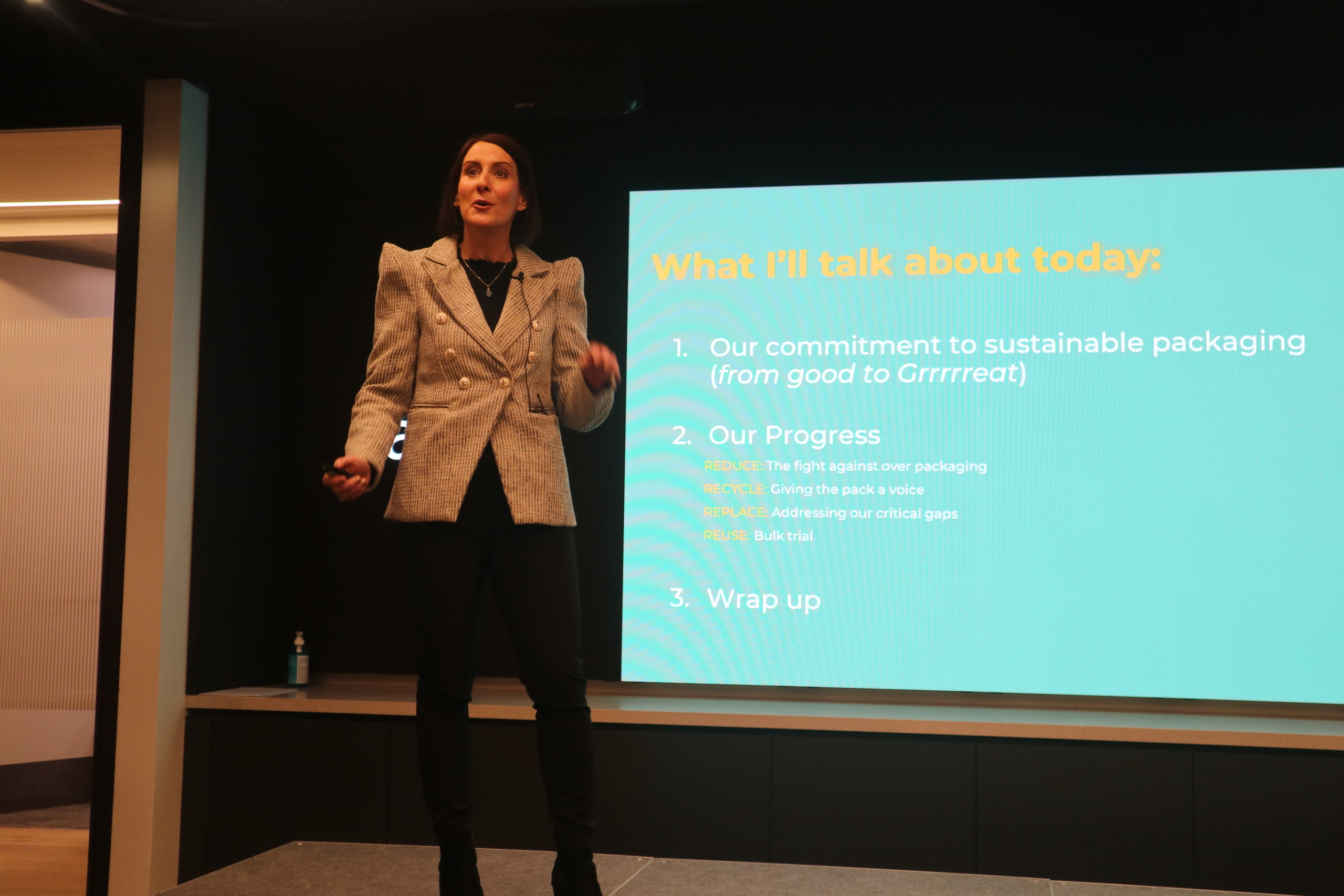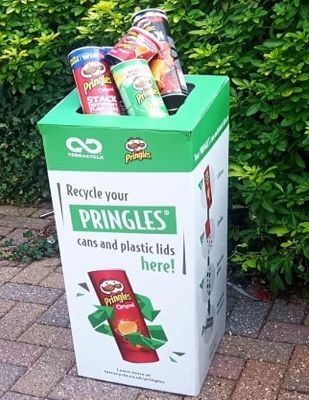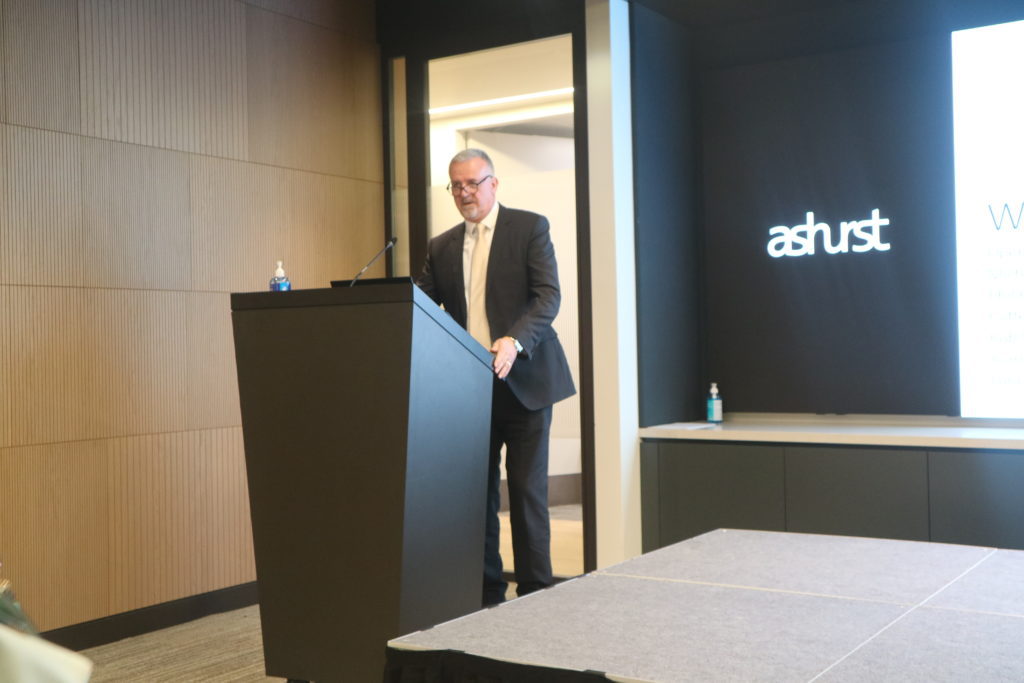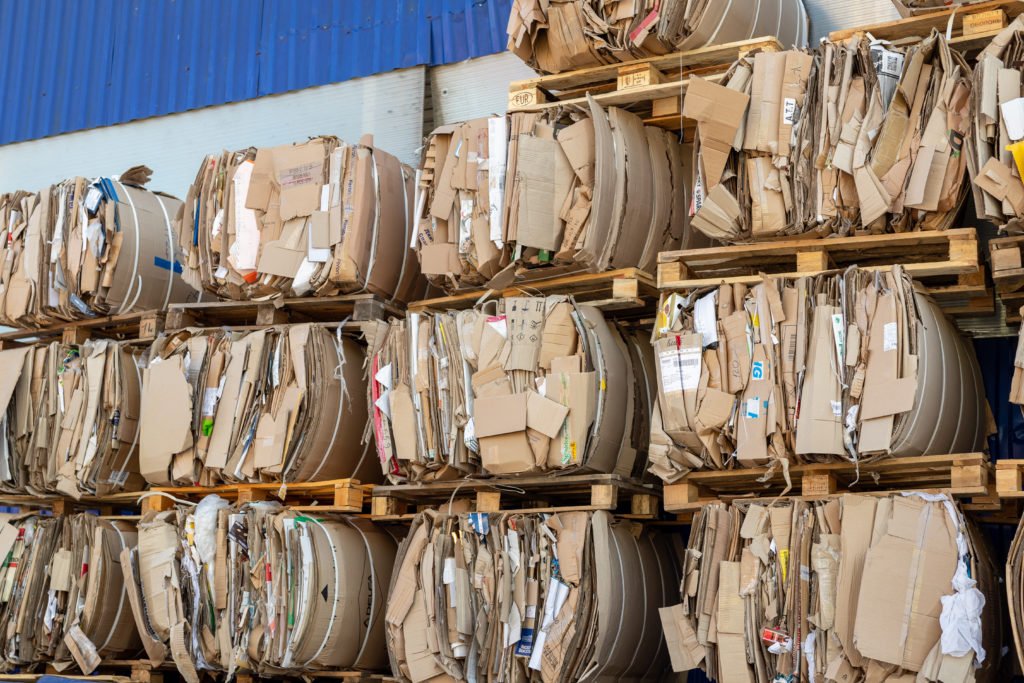Dr Ellin’s comments came during the Association’s annual conference at Ashurst solicitors in London.
The event also heard of a warning from multinational firm Kellogg’s that care had to be taken in reducing and changing packaging to avoid creating food waste.
President Craig Curtis opened the conference, the association’s first physical meeting in more than two years, by welcoming delegates.
He was followed by Dr Ellin, who said the past two years had presented “many opportunities” for those including collectors and recyclers despite the tragedies of Covid. However, Dr Ellin said the industry currently faced issues relating to the transport of material: “The problem we have at the moment is simply moving it around, the logistics of a post-Covid environment.”
And, Dr Ellin suggested there needed to be clearer rules around what material could be exported from the UK, particularly in the context of Biffa Waste Services’ £1.5 million fine last year for breaching regulations over the export of mixed paper (see letsrecycle.com story).
He added: “We’re looking at the Biffa case – what can we do, what can’t we do, and how we clarify that going forward.”
Packaging
Another to speak at the conference was Michelle Hammond, sustainable packaging director at Kellogg’s, who talked about several of the company’s sustainability initiatives.

Ms Hammond told delegates that Kellogg’s had committed to 100% of its packaging being reusable, recyclable, or compostable by the end of 2025.
Currently, Ms Hammond said, 76% of Kellogg’s’ packaging is recyclable at the kerbside, 9% is recyclable in-store, and 15% is “non-recyclable”.
Explaining how Kellogg’s tackled packaging, she said: “If you can’t remove it, then reduce it where you can. If you can’t reduce it, always use recyclable materials, and get to a redesign situation when we know we have a ‘problem child’.”
Ms Hammond sounded one note of caution, suggesting Kellogg’s was not keen to change its packaging if it affected a product’s shelf life.
“What we don’t want to do is be so blind on packaging that we end up introducing food waste,” she said.
Project Air
Ms Hammond said Kellogg’s had reduced packaging material by 1,000 tonnes in the last two years. She cited ‘Project Air’, which saw Kellogg’s remove excess air from its cereal packs by cutting the size of the boxes.
“It reduced plastic in the liner, it reduced cartonboard, and it also made transport more efficient as well,” she said. “So, we’re saving in terms of tonnes of material and we’re also saving in terms of CO2.”
Ms Hammond acknowledged that the initiative saw “fierce opposition” within Kellogg’s.
“You can imagine sales and marketing when you tell them the pack’s about to get smaller on the shelf next to the competitor – they were horrified,” she said.
Kellogg’s had to ensure it was a “fully integrated campaign” to assuage the doubters within the company, Ms Hammond said.
“To really make business sense, we asked ‘can we make it work on our lines? Can we get a press release out of it? Does it work for our consumers?’” she said. “It’s about that end-to-end thinking, because we are a business, after all.”
Pringles
Speaking at the conference also gave Ms Hammond the opportunity to address Pringles, a particular bugbear of the Recycling Association.

Dr Ellin has long campaigned against packaging made up of several different materials. He picked out Pringles as one of the worst offenders due to the cardboard outer, metal lining, metal base, foil and paper strip, and plastic lid.
Ms Hammond described Pringles as her company’s “naughty child”. However, her presence at the conference suggested the Recycling Association and Kellogg’s had now buried the hatchet.
Consumers can recycle Pringles tubes at 700 TerraCycle collection points and more than 330 bring banks across the UK.
Ms Hammond said: “Is this the best solution for the Pringles can – that we partner so consumers can recycle in a TerraCycle drop-off or a bring bank? Is it the best solution? No.
“Is it our final solution? No, but it’s one that helps drive consumer behaviour now to understand that for 85% of the UK there is a home for your Pringles can.”
Kellogg’s trialled a paper can for Pringles in the UK in 2020, as well as a steel can in Italy the year before.
EPR
Phil Conran, director of consultancy 360 Environmental, also addressed the conference on the regulatory changes looming for EPR.

As part of a wide-ranging discussion, Mr Conran said the sector would have policies related to the new waste tracking system, the new carriers, brokers and dealers system, DRS, consistency and EPR all “converging” in 2024.
It was announced last week that the roll-out of EPR would be delayed by a year (see letsrecycle.com story).
Referencing one possibility that the Environment Agency might take on a scheme administrator role, Mr Conran said: “Underneath all this, someone’s going to have to enforce it. You have to question the capabilities of our current regulator to manage this huge burden.”












Subscribe for free